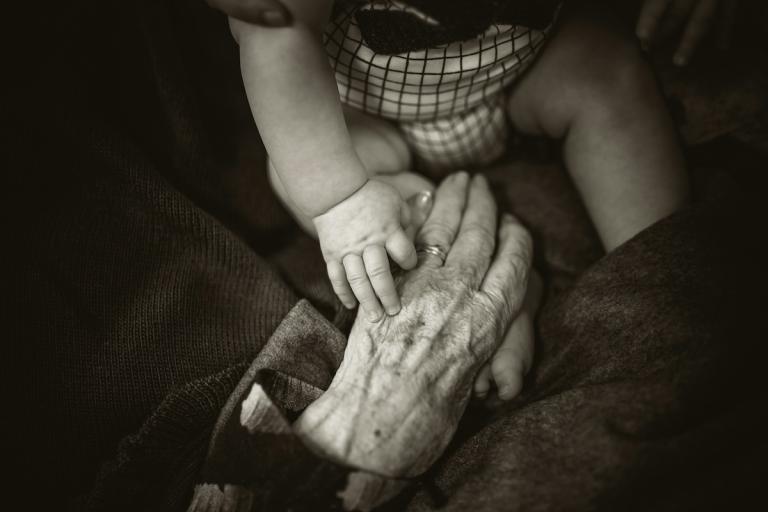
“Help the terminally ill die with dignity at a time of their own choosing” is the cry of those who want to change our law. After all, we have our pets put down if their suffering is great enough. Why would we want to force our family and friends to endure painful and difficult deaths when we could ease their passing at a time of their choosing?
Churches and our health services alike need to ensure they are offering HOPE to those who are suffering, rather than offering them what previous generations would have rightly called murder. Pain relief and good care removes the need for assisted suicide.
I would urge anyone in the UK concerned about this potential new law to write to your MP TODAY about it.
Esther Rantzen made an impassioned plea. The new UK government has made time for a private members bill and allowed for a free vote of conscience for all members of the UK parliament. This is the way us British deal with such ethical issues. And if the vote goes one way centuries of legal tradition will be swept away and assisted suicide will be allowed for the first time. But there is a growing push back.
The legal text of the bill has been published and it proposes to:
Allow adults who are terminally ill, subject to safeguards and protections, to request and be provided with assistance to end their own life . . . the person has an inevitably progressive illness, disease or medical condition which cannot be reversed by treatment, and . . . the person’s death in consequence of that illness, disease or medical condition can reasonably be expected within 6 months . . . treatment which only relieves the symptoms of an inevitably progressive illness, disease or medical condition temporarily is not to be regarded as treatment which can reverse that illness, disease or condition.”
The first problem with this idea is how to define terminally ill. There is no way that any measure like this would be left at this “six months to live” stage. The line about discounting the effects of treatment that relieves symptoms “temporarily” will of course in itself weaken this time-limit, and I very much doubt it would be enforced. This process has happened in every country that has passed similar legislation.
Certainly in the case of abortion in the UK, when it was first passed the law was very clear about specific and limited situations it would be allowed, and these conditions have since been ignored without amending the law, to allow abortion on demand, which is technically still illegal here.
How could you justify allowing someone who has a chronic pain condition not to also be included in this kind of legislation? If not now, when it is introduced, down the line. And certainly countries that have decided to allow the killing of patients by doctors who are meant to be treating them have extended and extended the conditions that are allowed. Some even now allow mentally ill people to ask for assisted suicide.
But even if you claimed you would stick to the strict definition of terminal illness you have a major problem: Doctors do NOT know when people are going to die, and will feel under pressure to pretend they do. As I have explained elsewhere cancer prognosis for example, is far from the exact science some think it is:
- Average life expectancy is not the same thing as maximum life expectancy. I have met cancer patients who were not expected to last more than a few months, but were given a treatment that was new at the time and are still very much alive more than twenty years later. One such patient was told they would definitely be dead within five months (well within the new legal definition) but just over a year later is believed to be totally cured of their cancer.
- Survival statistics are always out of date by definition. So even if say a ten year survival study was completed today, the statistics are obviously referring to patients diagnosed at least ten years ago. We don’t want to know how people diagnosed more than ten years ago did, we want to know how we will do.
- Many cancer treatments have improved dramatically in recent years. Some conditions which had very poor survival just a few years ago now have great new treatments available, and new research is ongoing all the time.
- Survival data reflects the age and general health of the typical population with that cancer. So if your cancer is typically diagnosed in elderly patients, they might not expect to live for very long at all even before they were diagnosed. If you are several decades younger than the typical patient then in some cases you can hope to live much longer than reports suggest.
- Even if the data is correct mean survival can be quite misleading. It does NOT mean that everyone should expect to live to the mean or median survival point. In the case of median survival all that means is that 50% of patients will have died by then (as we also mentioned this may well include deaths from other conditions). But it might be the case in some diagnoses that some patients with more aggressive versions are dying early, whilst perhaps in some conditions those who survive for the first year or two are then very unlikely to later die from that cancer.
- Ultimately it does not matter what happens to the average patient. What matters is what will happen to you. Your health situation is unique. You may be very healthy. You might have a much less aggressive version of your blood cancer than average. Or you might have a more aggressive than average version but perhaps it will also respond very well to treatment, giving you a much better outcome than typical. You might be given bad odds, but you may be fortunate enough to beat those odds. Someone close to me was told they only had a 30% chance their blood cancer treatment would work. But work it did, so in the end that statistic didn’t really matter. He was told that he would die in months without treatment, and so would have been eligible for the assisted suicide law. READ MORE
But behind this insidious proposed law is a deeply anti-disabled attitude. Many disabled people are expressing their concerns about how a law like this devalues their experience, and their fears that they will be put under pressure to “save the NHS” and “save social care” by putting themselves to death. People are also finding on social media that there is a horrid backlash that they are sometimes exposed to. With vitriol about how we do should not want to live. The assumption comes from pro-death activists that our quality of life with the chronic conditions we suffer from must be so bad that we would obviously want to die. That is a horrible pressure and society needs to value the sick and dying, and find ways to treat them with dignity that do not involve pressuring them to kill themselves.
As the founder of a patient group called Blood Cancer Uncensored I have spoken with a lot of cancer patients who often struggle with not being given clear information about their prognosis and its lack of certainty. Some could well feel under pressure to have themselves killed even if expensive treatment might offer them a cure and another couple of decades of life.
Terminally ill patients, and those who are suffering from chronic pain and other conditions need to be offered proper care that prioritizes pain and other symptom relief, the hospice care movement in the UK offers incredible services to do just this. And there is scope under current legislation to give large enough doses of opiate pain killers to relieve pain and offer dignity to the dying without assisted suicide being necessary.
But the NHS is broken. And as a result over 3000 doctors have signed a letter expressing concern that allowing assisted death cannot be safely brought in while patients feel they will not be able to get the care they need.
The legislation has been rushed with the two longest serving MPs united in claiming that the campaigners are taking advantage of a relatively young and inexperienced parliament to try and bounce through a measure that has been rejected before. They argue in a joint article for the Guardian:
“There can be no safeguards that would prevent an assisted dying law from being abused. It must remain illegal . . . we have seen our fair share of bills over the years: some good, some bad . . . When MPs last voted on this issue less than a decade ago, in 2015, Rob Marris published his private member’s bill a full seven weeks before MPs voted . . . In contrast, Kim Leadbeater’s bill was published just 18 days ahead of second reading . . .
Evidence from elsewhere suggests those most at risk when assisted suicide is legalised are vulnerable minorities . . . Imagine the pensioner whose children cannot afford houses of their own watching her limited savings, earmarked for those children, disappearing on social care and so feeling a “duty to die” . . .” READ MORE in The Guardian:
Wes Streeting, our health secretary who has himself gone through cancer treatment raised this issue as well:
“I would hate for people to opt for assisted dying because they think they’re saving someone somewhere money, whether that’s relatives or the NHS. I think that’s one of the issues MPs are wrestling with as they decide how to cast their vote.” READ MORE
But more fundamentally than all the other arguments, as a Christian I believe that human life is precious and should not be taken by other humans except in self defense and the so-called just war. There is no justification for ending the precious gift God has given us.
Do you not know that you are God’s temple and that God’s Spirit dwells in you? If anyone destroys God’s temple, God will destroy him. For God’s temple is holy, and you are that temple. (1 Corinthians 3:16-17, ESV
I have previously written about suicide here:
For centuries the Christian faith, like most other world religions has discouraged suicide. There are only a few cultures in the world that celebrate suicide as an honorable act. In contrast, the Abrahamic religions all value life as inherently precious and given to us by God, and so see suicide as simply than self-murder. The commandment says “You shall not murder” (Ex. 20:13) . . .
Religious ethics are often fear based. But, the whole point of Christianity is not legalistic obedience . . . To the Christian, the lure of sin, any sin, is less when we realize God loves us! It is the love of God and the fellowship of fellow believers that should provide an environment that discourages suicide. People kill themselves because they have lost hope. Our churches should be grace-filled, hope-imparting communities of acceptance. Can our love reach out to the suicidal and those left behind in a more helpful way? READ MORE
As forgiven sinners who’s bodies were purchased by the death and resurrection of Jesus himself even if we are not “contributing” to society every human has immense value, and is not a piece of rubbish to be discarded.
Churches and our health services alike need to ensure they are offering HOPE to those who are suffering, rather than offering them what previous generations would have rightly called murder.
 More from Adrian Warnock
More from Adrian Warnock
How long will I live with blood cancer?
 How long will I live with blood cancer? What is the survival rate? How can we handle such frightening questions? A hope filled approach.
How long will I live with blood cancer? What is the survival rate? How can we handle such frightening questions? A hope filled approach.
Why we need to be careful about invoking God’s name to justify war














